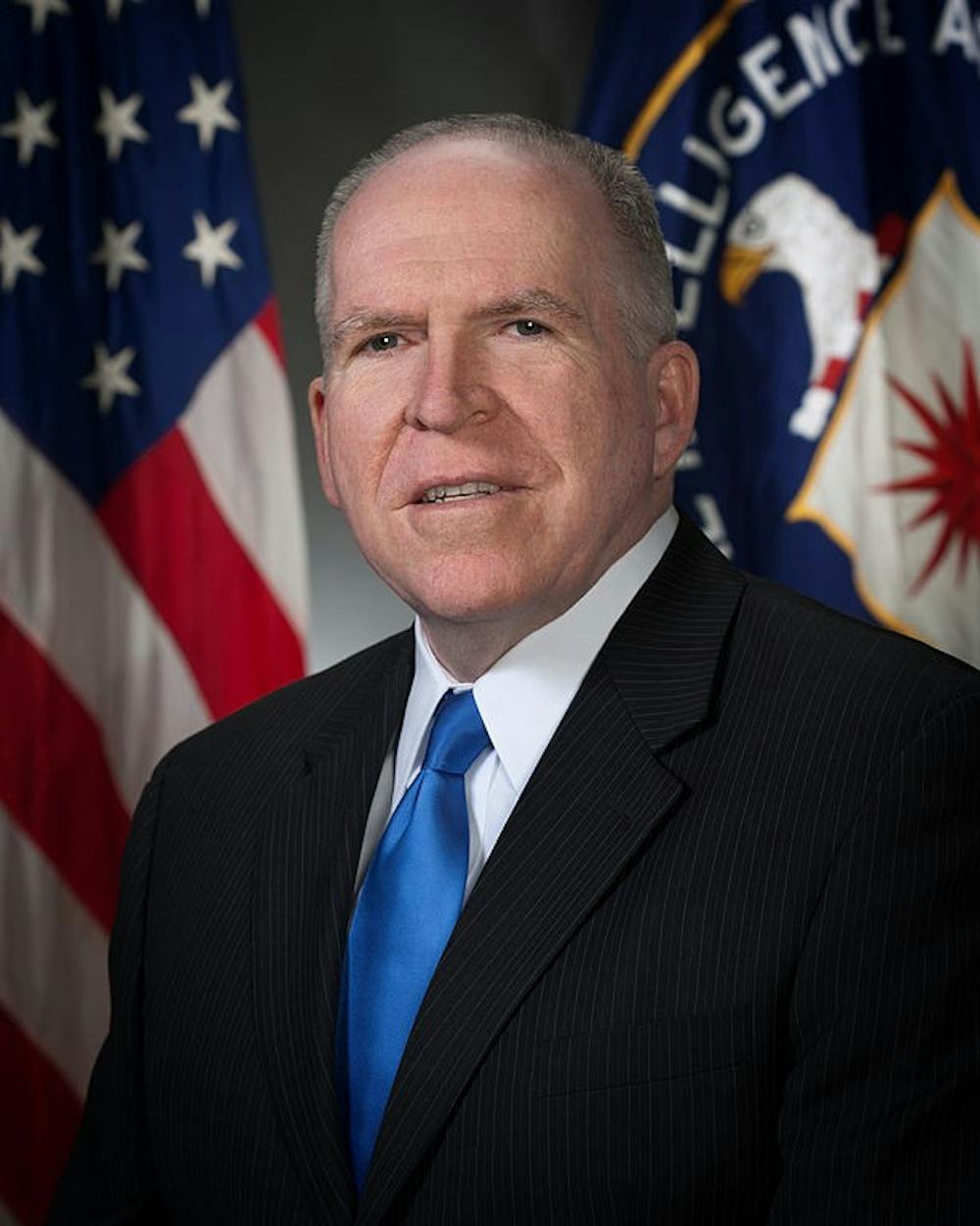The protests that interrupted and ultimately ended a discussion between Penn professor Marjorie Margolies and CIA Director John Brennan have kicked off a series of reactions across campus, from a petition by a student publication to an official debate sponsored by the Penn Political Union.
Engineering junior Lucas Lipatti, who protested at the event and is a member of Students for a Democratic Society, the student group that organized the protest, said the group came to the event with very specific goals.
“The goal of the action was to first of all draw the line and say no,” they said. “That we do not agree with bringing a speaker like him to campus and that his war crimes should be exposed.”
Lipatti also said they think the actions of the group were successful — that the protests elevated awareness on campus about issues surrounding the CIA, and that the debate scheduled for Monday is evidence of this. Whether or not SDS actually intended to shut down the event is another story.
“Our goal was to disrupt the event,” Lipatti said. “We did not have a specific goal as to whether it should or should not have been shut down. It’s just how it happened.”
But for Penn Law Dean Theodore Ruger, who was present at the event, the fact that SDS shut it down was precisely the problem.
“We had all heard their very valid concerns, we recognized and respected their opinions about the CIA and their opposition to the CIA,” he said. “But when they kept going on despite repeated requests to let others talk, they did have the effect of censuring or silencing speech.”
Ruger introduced the event, which was organized partially by Penn Law, and for the majority of the time was seated as an audience member. He said he feels there wasn’t anything he could have done to keep the event going.
“I was involved in trying to talk to the protestors in order to persuade them to permit the event to go on,” he said. “But in this instance they were made aware of the University’s freedom of expression policy — they were repeatedly told that we had heard their views and respected their views, and nonetheless, they persisted.”
The official policy Ruger mentioned says that the “University affirms the right of members of the University community to assemble and demonstrate peaceably,” but adds in a subsequent section that individuals or groups violate these guidelines if “they interfere unreasonably with the activities of other persons.”
This was the gist of the email, from Provost Vincent Price and Vice Provost for University Life Valarie Swain-Cade McCoullum, that was sent out to all undergraduate students on April 5. Neither the event nor the protestors were specifically mentioned in the email.
“Members of our community will at times be confronted with ideas that they fundamentally oppose,” the email said. “The solution is not to suppress the ideas we reject, but instead to counter those ideas with better ones.”
Penn President Amy Gutmann declined to comment on the matter beyond what was addressed in the email by her fellow administrators.
After the protests, the student group Penn Political Union reached out to members of SDS to see if they would be willing to participate in a debate on the subject of the morality and effectiveness of the CIA.
College junior Sarah Simon, President of the Government and Politics Association, which is the umbrella organization over PPU, said they wanted to create a space for debate as soon as possible, using the momentum from the elevated awareness on campus that had come from the protests.
“We wanted to seize the moment,” she said, adding that they expect 80 to 100 people to attend Monday’s event.
PPU holds monthly debates on a variety of topics — in the past few months they’ve debated about the Iran Nuclear Deal and Bernie Sanders’ promise of free college.
College sophomore Cornell Overfield, who will argue in the debate that the CIA “do indeed help ensure global security,” said the format of the debate will be new for PPU.
“This is a bit of a revolution for us,” he said, adding that it likely had to do with a change in leadership. “Usually our debates are parliamentary affairs, not this two on two.”









